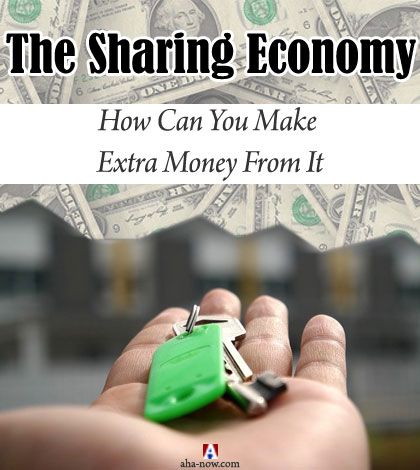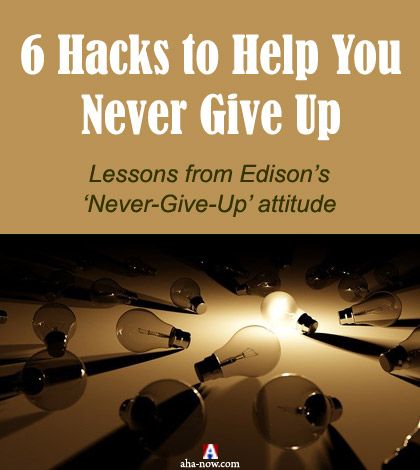The Sharing Economy – How Can You Make Extra Money From It

Table of Contents
If you’ve some resources that you do not use, you can rent them temporarily to people and earn money. This is the concept of the sharing economy model and it is coming up in a big way. Know more about the sharing economy, its history, and how you can be a part of it to make some extra bucks. ~ Ed.

The past decade has seen more innovation in terms of how people use technology than ever before.
Although it is true that this past decade hasn’t given any new technology so-to-say, the way we use it has evolved in ways that were completely unprecedented.
When we think of business, we tend to have a traditional idea that involves a good or a service that you provide in exchange for cash or barter.
Now, this is true and will always remain true. But the application of this very simple concept of trade has led to some of the most interesting forms of business out there.
The most interesting, by far, is aptly called “The Sharing Economy.”
There’s a lot of confusion and a few gray areas when it comes to what exactly the sharing economy is.
So here’s a quick and useful guide that can hopefully inform you, dispel some rumors, and provide insights into new opportunities that you can avail within the sharing economy model.
What Is Sharing Economy
What exactly is the sharing economy? Simply put, the sharing economy is when you lend out a service or a thing for money. It’s a temporary provision that you give out using assets that may not be in current use.
It’s basically looking around at what you have and letting people borrow it for a fee. That’s all it is.
Sounds simple right? Now apply that simple concept to the predicament of entire populations and total strangers. There’s a whole side of checks and balances to sharing economy jobs and the players in it afloat.
So while it is a wonderful way to allow people us make extra cash from unused or underused assets, it’s built an entire complex support system to make it work. In the end, it turns your extra physical stuff into a shareable service.
Related Posts
How Did It Start
The origins of the sharing economy date back to online means of selling your extra stuff. This is primarily due to the success of eBay in 1995.
On eBay, you could put up anything—literally any legal service or product and name a price.
Facilitating that process opened the market for a whole bunch of copycats and variations of this same model. Sure garage sales and swap meets existed, but the digital component made it global.
From there, the idea of what an online business could be drastically changed. You had a whole commerce sector that revolves around bidding for someone’s old jeans.
And then something slipped through that was really special: rare resale products. Jordans, Beanie Babies, and Pokémon Cards became the rocket fuel for the sharing economy as it is today.
Who Are The Big Players
Today, the sharing economy is one of the largest money makers on the internet.
With giant players like Uber, Airbnb, Lime, and Zipcar taking over the market in terms of transportation and accommodations, it’s become the fastest growing business trend in recent history.
Investors from all around the world have pooled in billions upon billions of dollars in this new sector. The amazing part? Most of these businesses are private businesses.
It’s impossible to really know how big the sharing economy is. But one thing is for certain, the money grab isn’t over yet.
In fact, it’s likely that the way people go out and avail of products and services can come mostly from this share-based business model.
How Big Is The Sharing Economy
According to the McKinsey Institute, a company dedicated to tracking trends and changes in the global economy, over 162 million people in the United States and Europe will be providers in this sharing economy by 2021.
That’s more than 20% of the entire workforce. The value of that big a percentage is in the untold trillions.
Why are so many people joining? Because more often than not, it can offer a substantial and individually driven source of income that rivals most mid and entry-level jobs.
Why would one choose to jump in the 9 to 5 models when they can drive for Uber for the same amount of money and with limitless potential in terms of flexibility?
This new economic model is such an appealing alternative for major city dwellers that have extra time and a bit of drive to move forward with some promising gigs.
Related Posts
How Can I Get Into The Sharing Economy
Let’s create a scenario. You have a day job, student debt, some bills and credit cards you need to pay off, but don’t want the stress of having to take on more shifts at your primary job or take on a whole new second job for a whole-another eight hours.
The logical thing to do is sign up for one of the many delivery services or transport services out there. You can listen to lectures in the car while fulfilling multiple orders. If you’re a fan of podcasts, you were probably going to sit and veg out on the 2 to 3 hours conversation anyway.
You could spend those hours picking up and dropping off groceries. If you have a car, but find it easier to take public transportation, you can keep your vehicle available for car-share or even rental services.
Most people can live without their cars for a few days. If there is a second vehicle in the picture, that can absolutely be used to generate more income.
Furthermore, if you’ve got an extra room, you can be a part of the largest sector in the sharing business model and rent it out for a few days. The options are really quite limitless these days.
Wrapping Up
This new model has sprung directly from the overabundance of resources in the Western world.
It’s gotten to the point where people are running out of space in their closets because of the dozens of articles of clothes purchased a year.
Garages are filled with cars gathering dust. People spend on four-bedroom homes with no more than two people living in it.
This mentality of “more” and “bigger” created a lot of the debt individuals take on. But from that also came to the means to pay it off and then some. This is the new economy.
Over to you
Are you a part of the sharing economy in any way? Share your thoughts and experiences in the comments.
Disclaimer: Though the views expressed are of the author’s own, this article has been checked for its authenticity of information and resource links provided for a better and deeper understanding of the subject matter. However, you're suggested to make your diligent research and consult subject experts to decide what is best for you. If you spot any factual errors, spelling, or grammatical mistakes in the article, please report at [email protected]. Thanks.



















Hi Thank you for this blog!